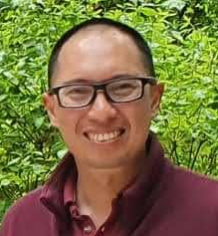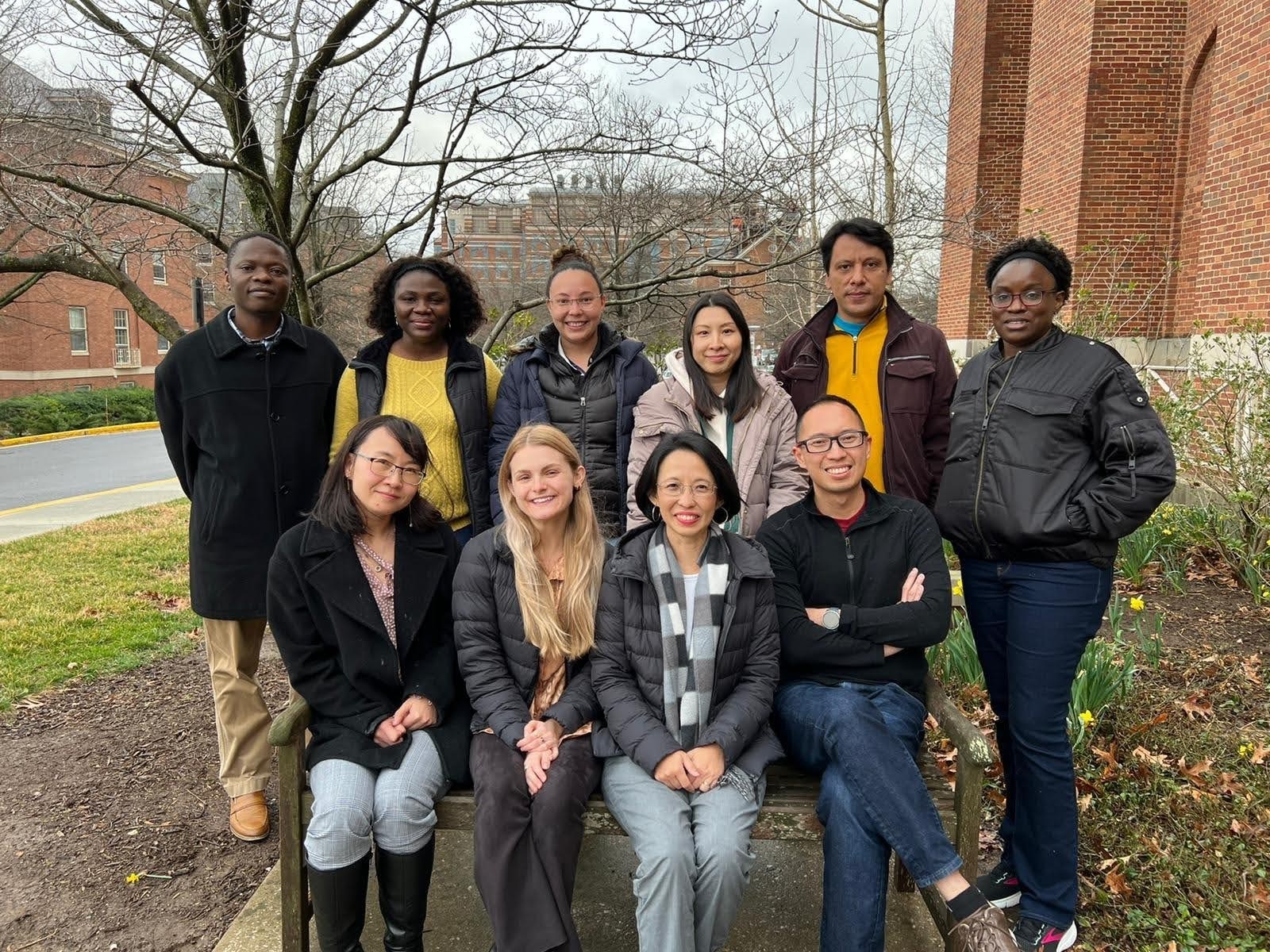Type 2 Immunity Section
P’ng Loke Ph.D.
Chief, Type 2 Immunity Section

Major Areas of Research
- Type 2 cytokine (IL-4 and IL-13) activated macrophages during helminth infections
- Role of microbiota during helminth infections
- Genetic and environmental contributions towards immune variation between individuals
- Helminth infections, inflammatory bowel diseases, metabolic syndrome, atherosclerosis, chronic inflammation
Program Description
Our research goal is to understand the heterogeneity of type-2 immune responses during helminth infections. Although we have co-evolved with helminths and most infections are asymptomatic, these parasites can cause pathology in some individuals that either mount a response that is too strong or too weak during infection. An appropriately regulated type-2 response is critical in maintaining the balance between expelling enough parasites and tolerating the remaining parasites without excessive collateral tissue damage, in order to maintain the fitness of the host.
Type-2 immunity induced by helminth infections may be therapeutically beneficial for improving symptoms of inflammatory bowel diseases and metabolic syndrome, but this may also benefit only specific subsets of individuals. The mechanisms underlying the heterogeneity of type-2 responses between individuals still remains poorly understood. We believe that characterizing these mechanisms will enable us to develop strategies to utilize helminth infections as treatment for specific inflammatory conditions (e.g., autoimmune diseases and metabolic conditions) for the right individuals, as well as designing better approaches toward limiting pathology that is caused by helminth infections.
Our basic immunological studies on macrophage biology and our translational research studies on the microbiota are converging toward the goal of understanding factors that regulate variation of type-2 immune responses in humans. Using a combination of mouse models, as well as field and clinical studies, our future plans are to test some of the concepts that we have developed on chromatin remodeling in macrophage responses to type-2 cytokines, as well as helminth-microbiota interactions, in mouse models, field studies and also human challenge infections.
Biography
Education
Ph.D., 2001, University of Edinburgh, UK
Dr. P’ng Loke completed his Ph.D. research at the University of Edinburgh on IL-4 activated macrophages responding to Brugia malayi filarial parasites in 2001. He then did postdoctoral research on costimulatory molecules at University of California-Berkeley and studied macrophage responses to different parasites at University of California-San Francisco. In 2009, he joined New York University School of Medicine as an assistant professor and was a tenured associate professor before he joined the Laboratory of Parasitic Diseases as a senior investigator in 2020.
Clinical Studies
Selected Publications
Devlin JC, Axelrad J, Hine AM, Chang S, Sarkar S, Lin JD, Ruggles KV, Hudesman D, Cadwell K, Loke P. Single-Cell Transcriptional Survey of Ileal-Anal Pouch Immune Cells From Ulcerative Colitis Patients. Gastroenterology. 2021 Apr;160(5):1679-1693.
Gause WC, Rothlin C, Loke P. Heterogeneity in the initiation, development and function of type 2 immunity. Nat Rev Immunol. 2020 Oct;20(10):603-614.
Lin JD, Devlin JC, Yeung F, McCauley C, Leung JM, Chen YH, Cronkite A, Hansen C, Drake-Dunn C, Ruggles KV, Cadwell K, Graham AL, Loke P. Rewilding Nod2 and Atg16l1 Mutant Mice Uncovers Genetic and Environmental Contributions to Microbial Responses and Immune Cell Composition. Cell Host Microbe. 2020 May 13;27(5):830-840.e4.
Lee SC, Tang MS, Easton AV, Devlin JC, Chua LL, Cho I, Moy FM, Khang TF, Lim YAL, Loke P. Linking the effects of helminth infection, diet and the gut microbiota with human whole-blood signatures. PLoS Pathog. 2019 Dec 16;15(12):e1008066.
Gundra UM, Girgis NM, Gonzalez MA, San Tang M, Van Der Zande HJP, Lin JD, Ouimet M, Ma LJ, Poles J, Vozhilla N, Fisher EA, Moore KJ, Loke P. Vitamin A mediates conversion of monocyte-derived macrophages into tissue-resident macrophages during alternative activation. Nat Immunol. 2017 Jun;18(6):642-653.
Ramanan D, Bowcutt R, Lee SC, Tang MS, Kurtz ZD, Ding Y, Honda K, Gause WC, Blaser MJ, Bonneau RA, Lim YA, Loke P, Cadwell K. Helminth infection promotes colonization resistance via type 2 immunity. Science. 2016 Apr 29;352(6285):608-12.
Training Program
NIH-Penn Immunology Graduate Partnership Program
https://www.med.upenn.edu/nih-igg-partnership/
Research Group
Our basic immunological studies on macrophage biology and our translational research studies on the microbiota are converging toward understanding factors that regulate variation of type-2 immune responses in humans. Using mouse models, field and clinical studies, we plan to test on chromatin remodeling in macrophage responses to type-2 cytokines, as well as helminth-microbiota interactions.


